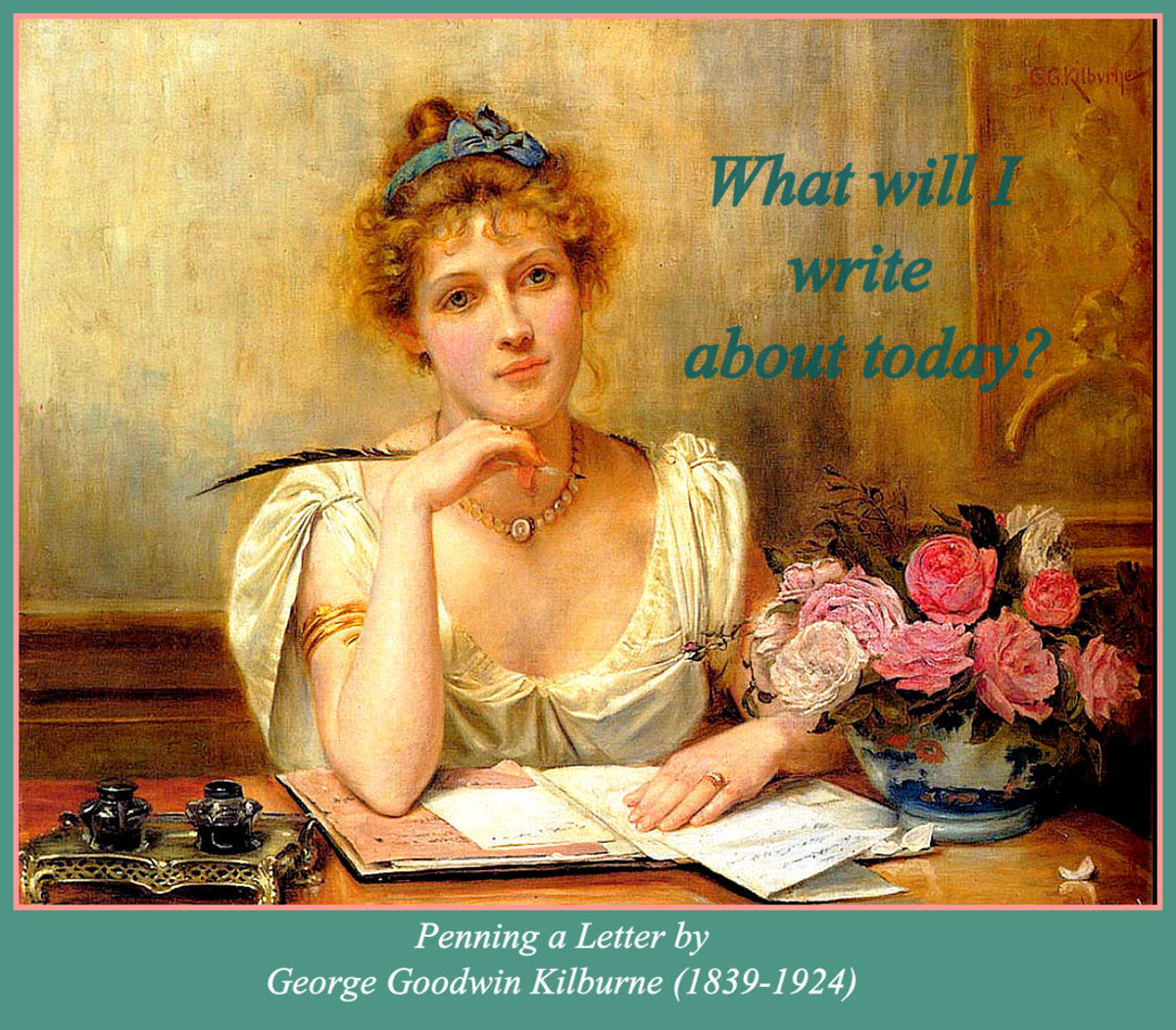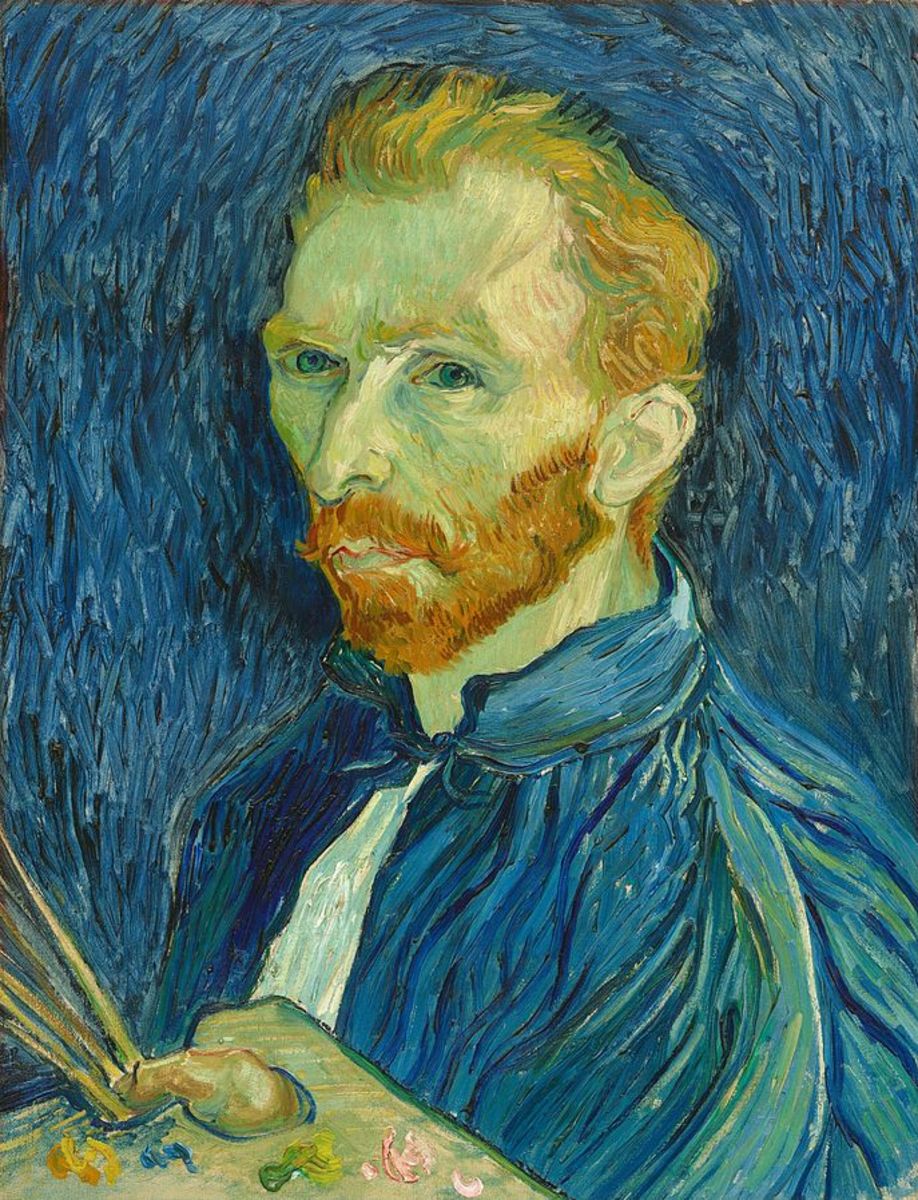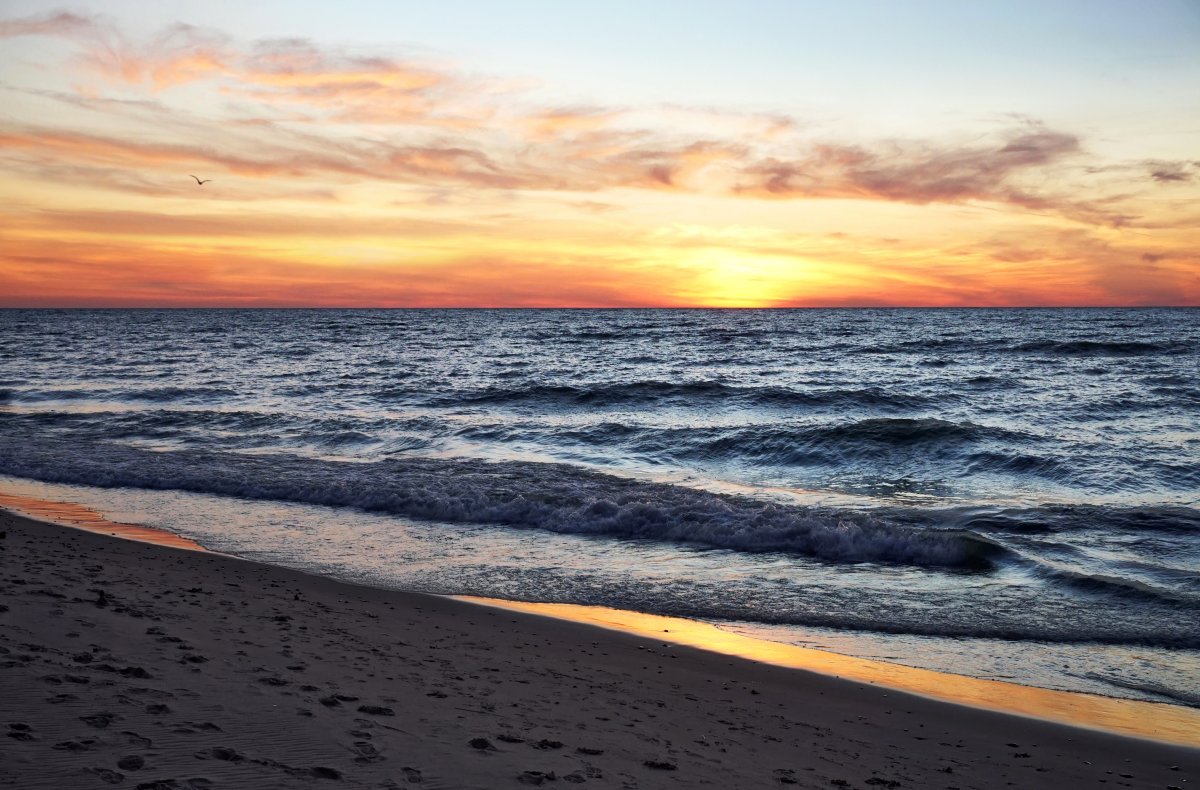Rachael O'Halloran's June 2014 Report: Copyright News Around The World
Published June 26, 2014
by Rachael O'Halloran
Copyright = Your Right To Protect Your Copy
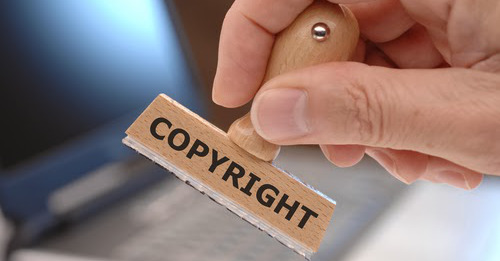
Copyright News
Copyright laws are changing all the time due to court verdicts or sometimes by tweaking and redefining the wording of laws.
We don't hear about these changes every time because those in charge don't usually publish updated versions of Copyright Law as it happens. Many countries publish monthly or quarterly, and some don't publish at all.
The exception is when a newspaper story showcases verdicts to court cases which change the way we do things in the copyright world. If one doesn't have their ear to the ground, one will never know about these changes.
The United States is the most flexible country of all the countries in the Berne Convention. However, as much as US citizens complain about the laws one way or the other, the United States does not take the prize for having the most unreasonable laws.
Here's a highlight of copyright news of several countries.
~~*~~*~~*~~*~~*~~*~~*~~*~~*~~*~~*~~*~~*~~*~~*~~*~~*
Map of Canada
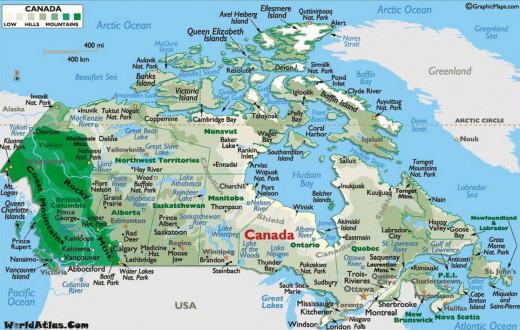
Update: October 2014
My readers will know from following me that I don't think a copyright holder's info should be "forwarded" to the copyright infringer because I don't want my home address and contact phone number to be shared with any infringers who steal my work. They already got my work. They don't need to know how to contact me to harass me for filing the infringement notice against them.
It took only one person who did exactly that in October 2014.
For that reason I have invested the small sum of $16 for the rental of a small Post Office box. The fee covers six months rental. It is convenient to have for the many people, places and things where you don't want to share your home address (like surveys, rebates, and now copyright infringement notices!).
Here's the link for the US Post Office fee list. The sizes are listed 1 through 5, the number one size being the smallest which holds 10 to 15 letter sized envelopes. If you get too much mail, don't worry about the box overflowing or becoming inaccessible to more incoming mail because the Post Office will put all your mail aside for you until you pick it up. I check in every week on my way home from the market. Since I have been using the PO box for copyright infringements only, I have noticed junk mail coming to the box. So I can only assume my info is being shared with more than just the copyright infringer.
You can apply for a Post Office Box online and here's the form.
I use my cell phone as my contact number. If possible, don't use your home phone number on any copyright infringement forms.
Canada
The Supreme Court of British Columbia (Canada) has ordered Google to remove entire domains from their search results and global index. Instead of ordering Google to remove certain links from the search results available through search address Google.ca, the order is for the entire database, requiring Google to make sure that no one, anywhere in the world, can see the search results.
The case which is at the bottom of this ruling, Equustek Solutions Inc. v. Jack, 2014 BCSC 1063 (CanLII), involves a fight between two Canadian companies over alleged theft of trade secrets. The defendant created a similar product to the plaintiff's product, put their new products on a website and engaged in "bait and switch tactics" to trick viewers into buying their product over the plaintiff's product.
It's not the first time this defendant has been sued for stealing product designs and putting them on their website. The plaintiff named Google as the facilitator because they are responsible for returning the defendant's website in search results, thereby giving access to the defendant's website showing the stolen designs.
According to the Copyright Reform Act of June 2012, it "allows copyright owners to send infringement notices to Internet Service Providers (ISP's), who, in turn, will be legally required to forward the notification to their subscribers.
If an ISP fails to forward the notifications, it must explain why or face the prospect of damages that run as high as $10,000. ISPs must also retain information on the subscriber for six months (or 12 months if court proceedings are launched).
The copyright owner may also send notifications to search engines, who must remove infringing content from the original source within 30 days. The notices must meet a prescribed form that includes "details on the sender, the copyright works and the alleged infringement."
Personal identifying information about the copyright holder is shared. This is also being done here in the United States on all copyright holders who file DMCA. (See sidebar note updated October 2014)
Most of this new Canadian copyright law went into effect in November 2012 and the rest will be implemented after lobbyists get done duking it out over setting up the actual fee schedules regarding infringement fines and licensing.
Since Google has been served with cease and desist notices, followed by take down notices, Google was not willing to block the sites from worldwide searches or to stop running advertisements showing the way to the website.
Now, according to the court ruling on this case, they have to do just that.
Google finally did take down the URL's that showed the way to the defendant's website on Google.ca domains.
But the Court said that wasn't good enough and ordered Google to delete the entire UK Google search engine domains (Google.go.uk, Google.ca, Google.go.ca and any Google site referring to the United Kingdom) from all search results around the world.
This will be quite an undertaking for Google to revamp its search engine to remove all references to these websites in any and all search results so that users do not inadvertently land on one of their webpages by way of a Google.com search.
Think about this!
If a Canadian court has the power to limit access to information for the world, then courts in other countries could take advantage of this too.
One intellectual property blogger asked "What happens if a Russian court orders Google to remove gay and lesbian sites from its database? Or if Iran orders Google to remove all Israeli sites from the database?"
Freedom of expression may well go right down the dumper, when courts start limiting companies like Google to what they can return in their search results.
What do you think? I'm interested in your thoughts.
It will be interesting to see if other search engines like Bing or Yahoo receive a similar order because they, as of this writing, have not been censored or instructed to remove anything from their databases.
I wonder if Google has a case in Canada for discrimination because a court ruled against them and no other search engines ....
~~*~~*~~*~~*~~*~~*~~*~~*~~*~~*~~*~~*~~*~~*~~*~~*~~*
Regarding Court Rulings: Is this telling a company how they can do business?
Do you think any court has the right to tell Google (or any search engine) what they can return in their search results?
Map of United Kingdom
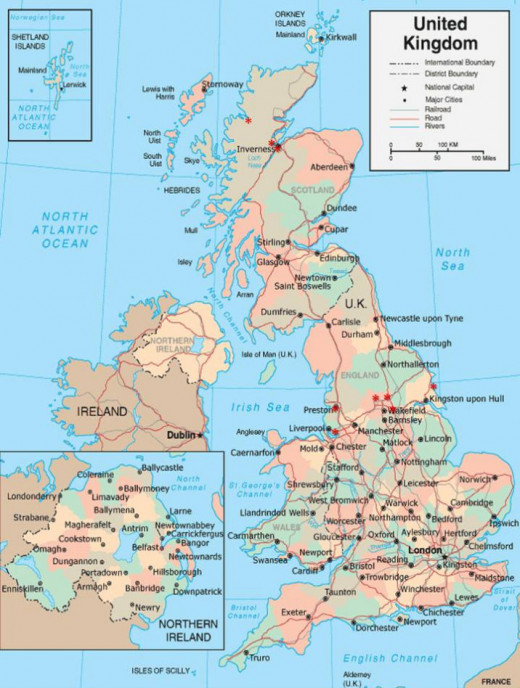
United Kingdom
England's copyright laws date back to 1710. For the most part, upon reading over 330 pages, their copyright laws are still very much back in the 18th century, even with the changes they have made in technical language and allowances for newfangled devices.
As shown in my recent article "You Are The Jury: The Case of Illegal Web Page User" a lawsuit between Public Relations Consultants Association Ltd v Newspaper Licensing Agency determined that a copyright isn't infringed by a user simply browsing the Internet. However, if a user wants to copy anything off the webpage, he will be required to purchase a license to do so. The thought of this just boggles the mind. We view this type of copying as infringement; they consider it acceptable as long as a fee is paid.
There are two rather big changes to UK's existing copyright law. As it stands, copyrights expire 70 years after the death of the author. However, there are amendments to two other uses: Published Rights and Publication Rights and those have the following changes:
Published editions
"Copyright in the typographical arrangement of a published edition expires 25 years from the end of the year in which the copyrighted edition was first published. Published editions do not have to be original but they will not be considered new copyright works if the typographical arrangement has been copied from existing published editions." (This explanation should have stopped after the first sentence because after that, they lost me.)
Publication Rights
"Publication right gives rights to a person who publishes for the first time a literary, dramatic, musical or artistic work or a film in which copyright has expired." However, there is one major difference, publication right only lasts for 25 years from the year of publication of the previously unpublished material.
They consider the owner of publication right as "the person who first publishes the unpublished material in which copyright has expired which will not necessarily be the original owner of the copyright in the work." (One has to act quickly!)
~~*~~*~~*~~*~~*~~*~~*~~*~~*~~*~~*~~*~~*~~*~~*~~*~~*
Changes to United Kingdom's Copyright Laws
Changes to the UK's copyright law went into effect on June 1, 2014. Because of the changes, the United Kingdom estimates their economy will be at least £250 million in the profit column over the next 10 years.
This is good news for the government and not so good news for those who want to use copyrighted works because they will have to purchase a license in order to use the work. (See "Heads Up" section below).
The changes bring the UK in line with the digital age and does away with old regulations that were outdated. But it didn't do away with some regulations where common sense should have prevailed in the decision-making process.
The changes don't do a thing for the citizen who wants to upload a parody of a music video to YouTube without permission (ex: Weird Al Yankovitch), or if he wants to share his personal copies of written material (ex: a book) or sound material (ex: a CD) with his friends.
These permissions were yanked from the new law at the last minute, with another review scheduled in 2015.
Copies For Personal Use
This change now allows you to make copies of any media you have purchased for your own private use, transfer your own CDs onto your MP3 player, or ebooks from a computer to a reading device (Nook, Kindle, etc.), but you can't make copies and give them to someone else. (They can expect a huge rise in pirating - both in the creation of pirate copies and making them available for purchase).
~~*~~*~~*~~*~~*~~*~~*~~*~~*~~*~~*~~*~~*~~*~~*~~*~~*
Heads Up:
Many countries in the UK require you to buy a license in order to use copyrighted works, as I mentioned in my Interactive Jury hub at the link above. Even if the copyright holder denies your request for use, if you obtain a license, you can use the work. They want to know what you are using it for (newspaper column, review or commentary, a screenplay, video, etc.), how much of it you are using and in what way (parody, derivative, etc.), so they can keep a tight rein on the use of copyrighted works.
This is most appropo with reprinting newspaper articles and academia. Where most countries have reciprocity allowing reprinting of news stories (ex: Associated Press, Reuters), the UK requires each person or business to obtain a license for each use.
~~*~~*~~*~~*~~*~~*~~*~~*~~*~~*~~*~~*~~*~~*~~*~~*~~*
Caricature, Parody, Pastiche
The change allows you to make reasonable use of creative copyrighted content to a limit, to use it in caricature, parody or pastiche, without getting permission from copyright holder.
A pastiche is any work that imitates the style or character of the work of one or more artists. Pastiche celebrates the work - it does not mock, like parody does.
The use of a few lines of a song for parody is considered fair use, but if you use the whole song, you would be required to get a license in order to use it. (What good is a parody of a work if you can't use the whole work? This part of the law change is useless to the average person who wants to parody a work.)
Quotations
The new changes now allow you to take a quotation from a copyrighted work without getting permission from the copyright holder, as long as it is a fair use.
Example: to use the title or a short excerpt in an "academic" article, this would be fair and permitted under the new change. But copying a long excerpt from a book in a questionable context (possibly unrelated to the topic of the material) would not be permitted.
Research and Private Study
The new changes permit "reasonable copying" of sound recordings, films and broadcasts for "non-commercial research and private study," (where you don't make money from it) without having to get permission from the copyright holder.
Also, libraries and universities will now be permitted to offer access to copyrighted works on electronic terminals as long as they are for research and academic private study. Although students will have better access to copyrighted works, their copying must still be reasonable and fair.
You can't copy a whole DVD just so you won't have to buy the DVD.
Text and Data Mining
The new changes now allows text and data mining (computer based analysis) of copyrighted works for "non-commercial" research without having to ask permission from the copyright holder. Researchers will be able to copy materials for the technical process as long as they have the right to access the work in the first place.
A citizen will be able to view a webpage on a computer or mobile device without infringing on anyone's copyright. But if he saves the page to his computer so he can view it offline later, that is considered copyright infringement.
Education and Teaching
The new updates make it easier for schools, colleges and universities to use copyrighted works. Certain forms of teaching such as Distance Learning will no longer have restrictions when they use copyrighted materials.
Another change allows minor acts of copying for teaching purposes only, as long as the use is considered fair and reasonable. This will allow teachers to display webpages, quotes and other copyrighted materials without asking permission. Formerly teachers were prohibited from using copyrighted websites as a teaching tool.
Libraries and Preservationists
Libraries, archives, museums and galleries will now be permitted to make copies of creative works in their collections so they can preserve them for future generations especially when buying a replacement is not practical.
Public Administration
The new changes allow public entities to share third party copyright material online. For example: material submitted by a citizen or a business when they are adding or maintaining a public register.
Up until now public entities were only able to provide materials by paper copy or by making it available for inspection on their premises. Now that there will be wider viewing on the internet, the public will be able to access the information more conveniently, saving time and money for all concerned.
The Disabled
Two changes will benefit the disabled, especially if the copyrighted work is not available in a format the disabled person can use: 1) disabled people will be permitted to make a single copy of copyrighted work in an accessible format for personal use. 2) charities will now be permitted to make multiple copies of copyrighted material for the use by the disabled.
Fair Dealing
This is similar to what other countries know as fair use. Fair dealing will determine if the work is being used lawfully or if it infringes on the work. This will be decided in court, just as fair use is decided in a court of law in the United States.
The underlying questions for determination are:
- How would a fair minded, honest person have dealt with the use of the work?
- Does the new use affect the market of the copyrighted work, causing the author to lose income?
- Was the amount of the use necessary, appropriate and reasonable or would less use of content have accomplished the same end?
~~*~~*~~*~~*~~*~~*~~*~~*~~*~~*~~*~~*~~*~~*~~*~~*~~*
You can read the ENTIRE transcript of changes to the UK copyright law here. (336 pages)
Although I gave you the capsulized version of the "important parts," the UK added more changes on June 14, 2014 for the disabled, museums, researchers, libraries, and public administration and you can read them here.
Map of United States, including Alaska and Hawaii
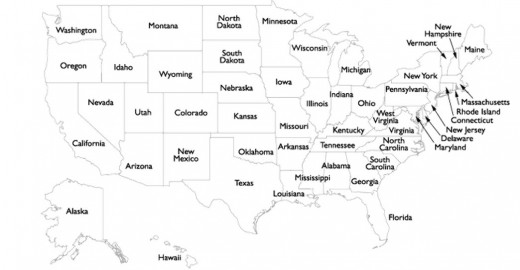
United States
American Broadcasting Company (ABC) vs. Aereo Inc.
Since 2012, Aereo Inc.has been streaming video to internet customers, sometimes at the same time the program is running on regular television. When a customer contracts with Aereo to watch a certain program, Aereo charges for access to their antenna boards so the user can receive the television broadcasts on computer, phone or other device. Each antenna can only transmit a signal to one user at a time so Aereo says that it is a private performance.
ABC said no, it isn't private. As soon as Aereo started advertising their service and after ignoring ABC's cease and desist letters, ABC filed their lawsuit. So this case has been in litigation for nearly two years as of this writing.
ABC charges state that Aereo was showing a "public performance of copyrighted works."
Aereo feels it is not actually performing any program in a public manner, but rather helps private users gain access to private performances in their own homes, similar to the service provided by Cablevision.
Aereo contends they were just re-transmitting the same content so users can access it privately. The Second Circuit Court agreed with Aereo.
ABC, however, did not agree and filed an appeal with the highest court, The Supreme Court of the United States (SCOTUS). They asked for a reversal of the Second Circuit's ruling and asked for the Court "to look at it like California did in the case of Fox TV vs Barry Driller Content Systems in which a technology similar to Aereo’s was ruled to create a public performance under the transmit clause."
The Supreme Court issued its "opinion" in American Broadcasting Companies (ABC) vs Aereo Inc. in a 6 to 3 decision and they ruled that Aereo infringed the copyrights of television broadcasters, producers, marketers and distributors by illegally streaming content. (Update 1/9/2015 - sorry, link was spammy so I had to remove it.)
The Supreme Court said: "Whether or not Aereo’s technical specifications include individual antennae, it is still commercially re-transmitting someone else’s work to thousands of consumers."
The US Supreme Court is the last stop for appeals. So, what the Supreme Court says goes and ABC wins.
Aereo will have to change or stop the way it does business.
After the ruling, ABC and other networks said that if Aereo had won this lawsuit, they all would stop providing content to be made available on the internet or for copies.
The cable companies pay the networks a lot of money to transmit their over-the-air channels and, if Aereo won this case, it could have changed all that.
~~*~~*~~*~~*~~*~~*~~*~~*~~*~~*~~*~~*~~*~~*~~*~~*~~*
Map of United States
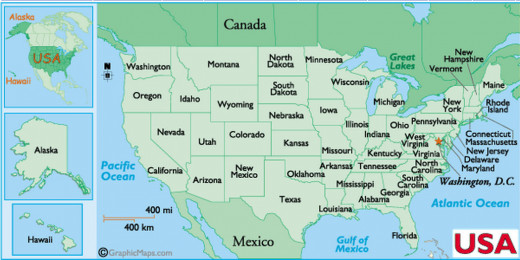
United States: Google Book Scanning Lawsuits
Author's Guild vs. Google
This case in currently on appeal before the Second Circuit Court.
Since 2004, without the permission of copyright owners, Google scanned more than 20 million books, delivered digital copies to participating libraries, created an electronic database of the scanned books and made text available for online searches through “snippets.”
Most of the books are out of print, 93% are non-fiction and 7% are fiction. Some participating libraries agreed to allow Google to scan only works in the public domain, while others allowed Google to scan "in-copyright works" as well.
Participating libraries may not obtain a digital copy created from another library’s books.
In 2005, a group of copyright owners brought suit against Google in the Southern District of New York. Eight years later, in 2013, Judge Chin drafted a decision in favor of Google. Although the court said that Google infringed the copyright owners’ rights of reproduction, distribution and public display, the court said that Google Books was within a fair use.
The Author's Guild filed a rebuttal appeal which has not been addressed by a court as June 2014
UPDATE:
August 2014: Several class action suits against Google resulted in a win for many authors. The court ruled that Google should pay the authors. Google appealed and the result is listed below under December 2014.
September 2014: Google settled another in the long line of lawsuits. This one was brought by six organizations representing a group of photographers whose work was scanned. Here's the result of their lawsuit: Google Books case.
December 2014: The US Court of Appeals ruled against Google so that Google must pay authors for the use of (scanning) their books into their online project.
~~*~~*~~*~~*~~*~~*~~*~~*~~*~~*~~*~~*~~*~~*~~*~~*~~*
Map of US & British Virgin Islands
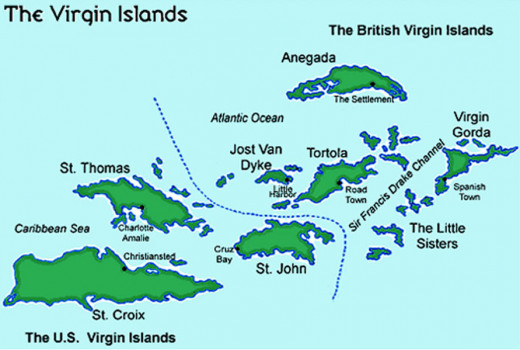
United States and British Virgin Islands
Copybank
Copybank put out this public announcement on June 25, 2014 in the US Virgin Islands and the British Virgin Islands.
"Copybank is proud to announce the release of a new anti-piracy service that guarantees authors fast, effective, and worldwide copyright security."
FYI: Copybank is an internet company offering a service only after you register your works with them. They claim they will then register your works in 167 countries so that you are protected by international law.
- I guess I'm missing the point of their service because, under the Berne Convention, you are already protected by international law from the moment you created the work.
After registering your intellectual property, Copybank says they will immediately begin to scan for illegal copies on the Internet.
- Your own internet search can do the same thing. I tried out several types of fee-based services and ditched them. I now use Copyscape, which is free. All I do is enter the hub title and it shows me not only if anyone has copied it and the link to their site, but the percentage of the article that was copied. For example: if it was scraped (random phrases or snippets taken from my work).
Copybank says that they "automatically inform you about copyright infringements on the Internet and will attempt to delete or ban illegal copies."
- To me, that means in order to delete or ban illegal copies, they'd have to file take down notices for you (DMCA). Unless they are the copyright holder of the work or the designated agent, they can't do that. Their terms of service may have a hidden clause giving them "agent" status, so read it carefully if you decide to use them.
The company will send you a report on all cases of infringement so you will be able to find the sources of violations.
- From the above statement, it appears that you will be doing the rest of the legwork to locate the hosting company, etc. In that event, how are they going to "attempt to delete or ban illegal copies?
They claim their service is "an effective tool against piracy and plagiarism that can detect illegal copies of specific content on the Internet and prevent their spread.
- Hmm, in their own fantasy world, I guess they believe their service is "an effective tool." I think this is an example of playing on an author's fears because companies who offer a service like this are taking advantage of "the author who doesn't know any better" and who doesn't realize that they don't really need someone like this when they have the tools right at their fingertips. Unfortunately, they get roped into paying for the service because they believe the hype and worry about their work being stolen.
Think about this!
If you are protected by your copyright, what is Copybank going to do for you that is better than the rights you already are granted by the Copyright Laws of the Berne Convention or the country of your origin?
They claim they "register copyrights, preserve your right to authorship, confirm your right to protect your intellectual property" and contend "that even though your copyright is in effect the moment you create the work, you can't validate the act of having created it without evidence. Copybank confirms your copyright and provides you with evidence of authorship."
My free advice: If you need validation or evidence, then go apply for your own paper copyright. You don't need to pay a company to do it for you. Do not get hooked into paying for any type of service like this. They will be performing the same searches you can be performing yourself, so save your money.
This is "my opinion," of course. That and a dollar will get you a cup of coffee at McDonald's. If any readers either work for Copybank or use it, remember that I am entitled to my opinion and I welcome yours in the comments.
~~*~~*~~*~~*~~*~~*~~*~~*~~*~~*~~*~~*~~*~~*~~*~~*~~*
Map of North and South Korea
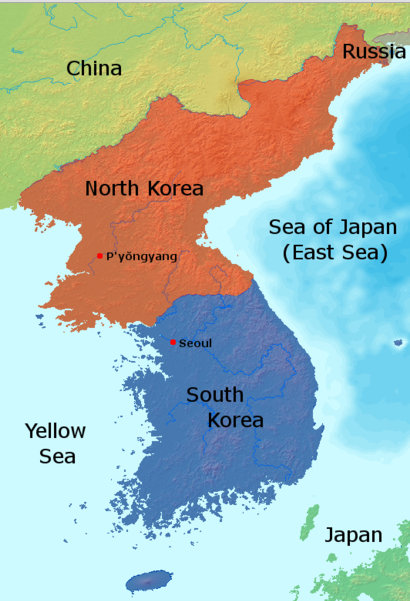
Korea
The Seoul Western District Court handed down their decision regarding the organizer of the 2013 World DJ Festival.
Judicial authorities ruled to fine the organizer and president of the 2013 World DJ Festival, a man named Choi, with a fine of 1 million wan ($980) for copyright infringement during the 2013 annual DJ Festival.
Korea Music Copyright Association filed a copyright infringement lawsuit against Choi for unauthorized use of DJ DOC’s hit single “I Am a Guy Like That,” written and owned by Psy, a hip-hop trio. The Korea Music Copyright Association represents Psy to deal with any copyright issues.
The court upheld the ruling that it is against the law for a singer to perform his or her own song, even if it is included on the singer’s own album, without first receiving permission from and paying the necessary royalties (licensing fees) to the copyright holder.
(I have a little problem understanding this one, so I'll leave it at that.)
“Even when the original singer is singing his ‘own’ song, he must pay a fee to the composer when using it for commercial purposes,” said Judge Song Sang-ah.
“Although Choi received notifications several times from the association prohibiting the use of copyrighted materials, he failed to take the necessary procedures for legal use of the song. Therefore, the court recognizes the copyright infringement,” the judge said.
~~*~~*~~*~~*~~*~~*~~*~~*~~*~~*~~*~~*~~*~~*~~*~~*~~*
Map of China
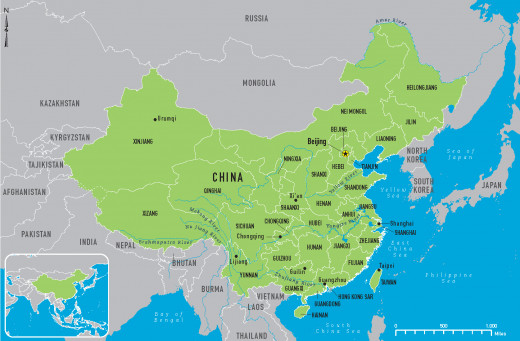
China
China's current Copyright law has been in effect since 1991 and on June 1, 2014 it underwent some much needed change.
In China, they draft law. That means they write one draft, run it by the State Council, make their "suggested" changes, then write a second draft. Again they run it by the State Council, write a third draft, finalize the language and then it becomes law.
The changes are:
The number of years to protect photographs was changed to life plus 50 years.
For works created by one person, protection of the right of publication and the property rights is limited to the life of the author and 50 years after his death. If it is a joint work, the term is calculated from the following January 1 after the death of the last author.
For audiovisual works, protection of right of publication is limited to 50 years. However, when works haven't been published for 50 years after their creation, this law doesn't protect them any more. The term for property rights is 50 years after the work is published the FIRST time.
For artworks, the term of protection of the right of publication is 25 years. However when works have not been published for 25 years after their creation, this Law doesn't protect them any more.
For works where the author is not clear or cannot be found, the term of protection is 50 years, calculated from January 1 of the year AFTER the first publication of the work.
China is considering raising penalties for copyright infringement, according to a draft amendment published in May 2014.
The draft amendment states that infringers will face fines of five times their illegal gains, or up to 250,000 yuan - when the exact sum cannot be established. Previously the figures were three times their illegal gains and up to 100,000 yuan. It will also allow authorities to seal off and seize illicit products.
The draft document will solicit public opinion, which should be submitted before July 5.
UPDATE:
August 1, 2014: China's Copyright Law went into effect and you can read it here.
~~*~~*~~*~~*~~*~~*~~*~~*~~*~~*~~*~~*~~*~~*~~*~~*~~*
Map of Argentina
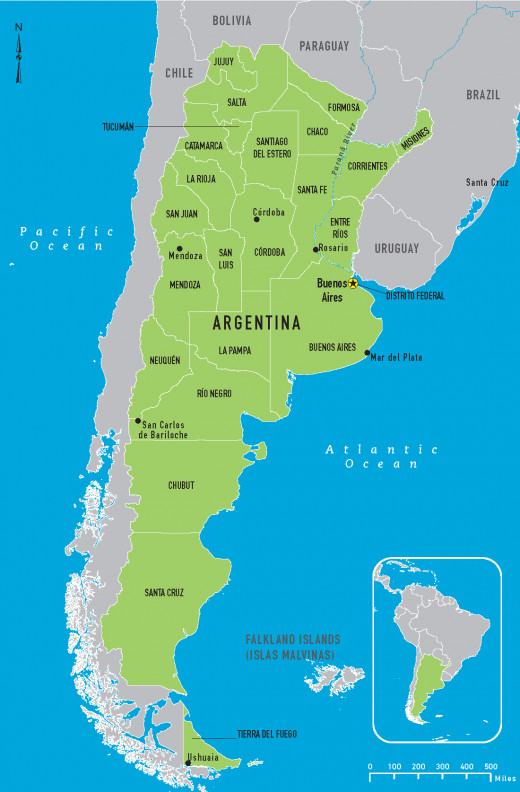
Argentina
Google, the number one search engine in the world, was notified by phone to remove a Google Autocomplete entry which linked a Argentina politician's name with an illegal drug. When Google did not remove the entry, they were in receipt of a court order to remove 1385 search results linking to information which allegedly connected the politician to pornography.
Again Google did not remove the results. They appealed and the court order was reversed.
Google Autocomplete -- for those who do not know, this is when you begin to type in the search box, Google's prediction service (based on activity for that particular search term) offers possible search choices relevant to your search words as you are typing in the box. These are usually searches by other people or Google's suggestion.
No other news or updates are available about Argentina's copyright laws.
~~*~~*~~*~~*~~*~~*~~*~~*~~*~~*~~*~~*~~*~~*~~*~~*~~*
My Rendering of Google's Logo
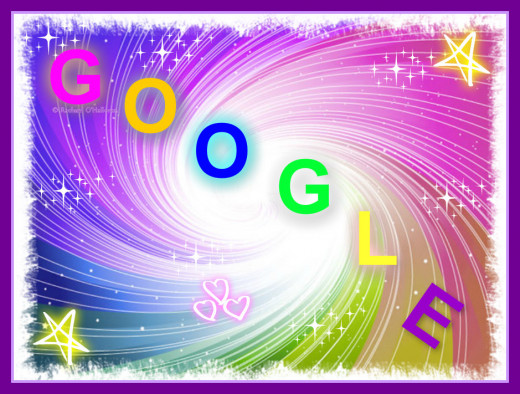
The list of requests (and the reasons!) for asking that names, blogs, videos and search results be removed from their search engine is staggering.
When you look over this report, notice how many requests Google refused to remove. Each one had personal "issues" when they asked for Google's cooperation. It is clear from this report that if you have self-interest behind your request, you are not gonna be happy with Google's answer.
~~*~~*~~*~~*~~*~~*~~*~~*~~*~~*~~*~~*~~*~~*~~*~~*~~*
Do Not Copy, Click Share Button Instead

I hope you enjoyed this slightly shorter version of my copyright infringement hubs.
Thank you for reading.
© Rachael O'Halloran, June 26, 2014
Updated December 2014
© 2014 Rachael O'Halloran


